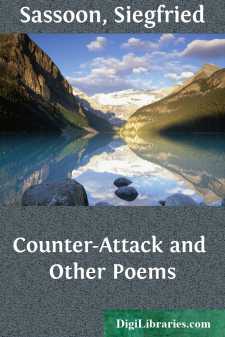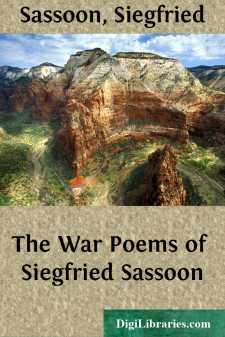Categories
- Antiques & Collectibles 13
- Architecture 36
- Art 48
- Bibles 22
- Biography & Autobiography 813
- Body, Mind & Spirit 142
- Business & Economics 28
- Children's Books 17
- Children's Fiction 14
- Computers 4
- Cooking 94
- Crafts & Hobbies 4
- Drama 346
- Education 46
- Family & Relationships 57
- Fiction 11829
- Games 19
- Gardening 17
- Health & Fitness 34
- History 1377
- House & Home 1
- Humor 147
- Juvenile Fiction 1873
- Juvenile Nonfiction 202
- Language Arts & Disciplines 88
- Law 16
- Literary Collections 686
- Literary Criticism 179
- Mathematics 13
- Medical 41
- Music 40
- Nature 179
- Non-Classifiable 1768
- Performing Arts 7
- Periodicals 1453
- Philosophy 64
- Photography 2
- Poetry 896
- Political Science 203
- Psychology 42
- Reference 154
- Religion 513
- Science 126
- Self-Help 84
- Social Science 81
- Sports & Recreation 34
- Study Aids 3
- Technology & Engineering 59
- Transportation 23
- Travel 463
- True Crime 29
Counter-Attack and Other Poems
Description:
Excerpt
INTRODUCTION
Sassoon the Man
In appearance he is tall, big-boned, loosely built. He is clean-shaven, pale or with a flush; has a heavy jaw, wide mouth with the upper lip slightly protruding and the curve of it very pronounced like that of a shrivelled leaf (as I have noticed is common in many poets). His nose is aquiline, the nostrils being wide and heavily arched. This characteristic and the fullness, depth and heat of his dark eyes give him the air of a sullen falcon. He speaks slowly, enunciating the words as if they pained him, in a voice that has something of the troubled thickness apparent in the voices of those who emerge from a deep grief. As he speaks, his large hands, roughened by trench toil and by riding, wander aimlessly until some emotion grips him when the knuckles harden and he clutches at his knees or at the edge of the table. And all the while he will be breathing hard like a man who has swum a distance. When he reads his poems he chants and one would think that he communed with himself save that, at the pauses, he shoots a powerful glance at the listener. Between the poems he is still but moves his lips… He likes best to speak of hunting (he will shout of it!), of open air mornings when the gorse alone flames brighter than the sky, of country quiet, of his mother,
[Footnote: His father was a well-to-do country gentleman of
Anglo-Jewish stock, his mother an English woman, a Miss
Thornycroft, sister of the sculptor of that name.]
of poetry—usually Shelley, Masefield and Thomas Hardy—and last and chiefly—but always with a rapid, tumbling enunciation and a much-irked desperate air filled with pain—of soldiers. For the incubus of war is on him so that his days are shot with anguish and his nights with horror.
He is twenty-eight years old; was educated at Marlborough and Christchurch, Oxford; was a master of fox-hounds and is a captain in the Royal Welsh Fusiliers. Thrice he has fought in France and once in Palestine. Behind his name are set the letters M.C. since he has won the Military Cross for an act of valour which went near to securing him a higher honour.
Sassoon the Poet
The poetry of Siegfried Sassoon divides itself into two rough classes—the idyllic and the satiric. War has defiled one to produce the other. At heart Siegfried Sassoon is an idealist.
Before the war he had hardly published a line. He spent his summers in the company of books, at the piano, on expeditions, and in playing tennis. During winter he hunted. Hunting was a greater passion with him than poetry. Much of his poetry celebrated the loveliness of the field as seen by the huntsman in the early morning light. But few probably guessed that the youth known to excel in field sports excelled also in poetry. For, in its way, this early poetry does excel. It was characteristic of him that nearly every little book he then wrote was privately printed. Poetry was for him just something for private and particular enjoyment—like a ride alone before breakfast. Among these privately printed books are Twelve Sonnets (1911), Melodies, An Ode for Music, Hyacinth (all 1912)....



